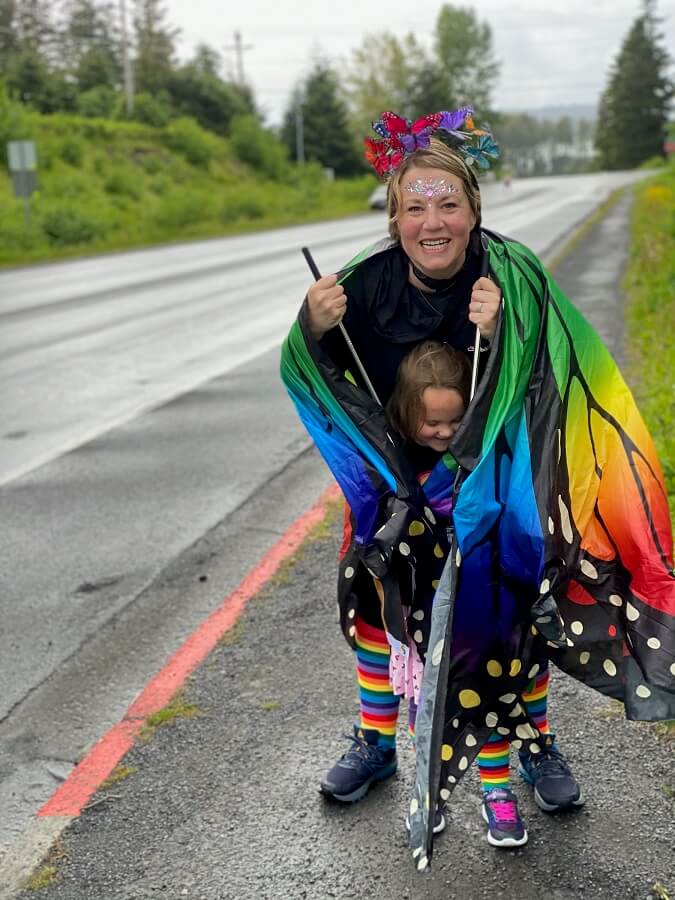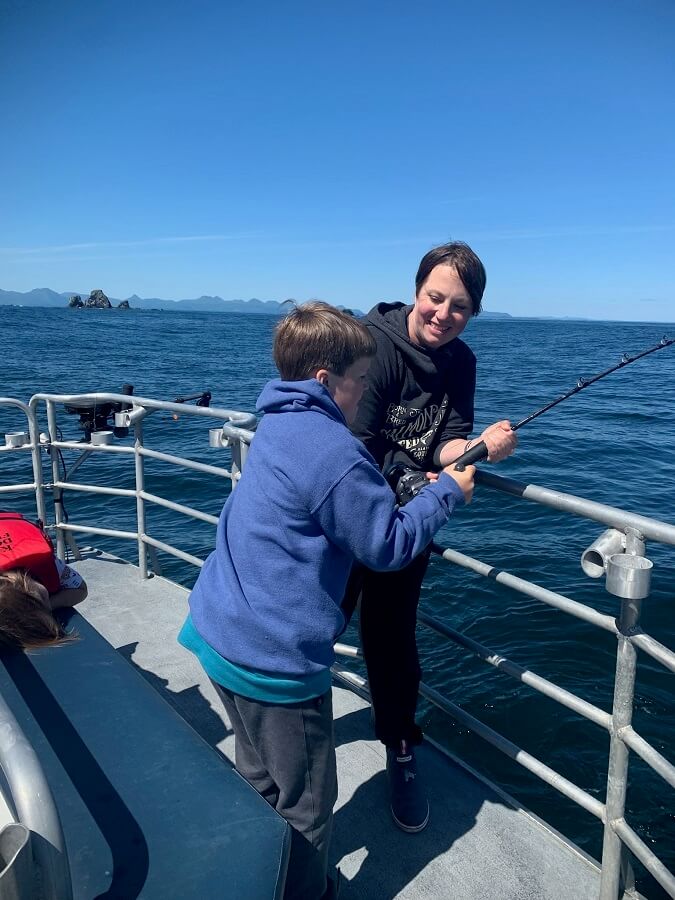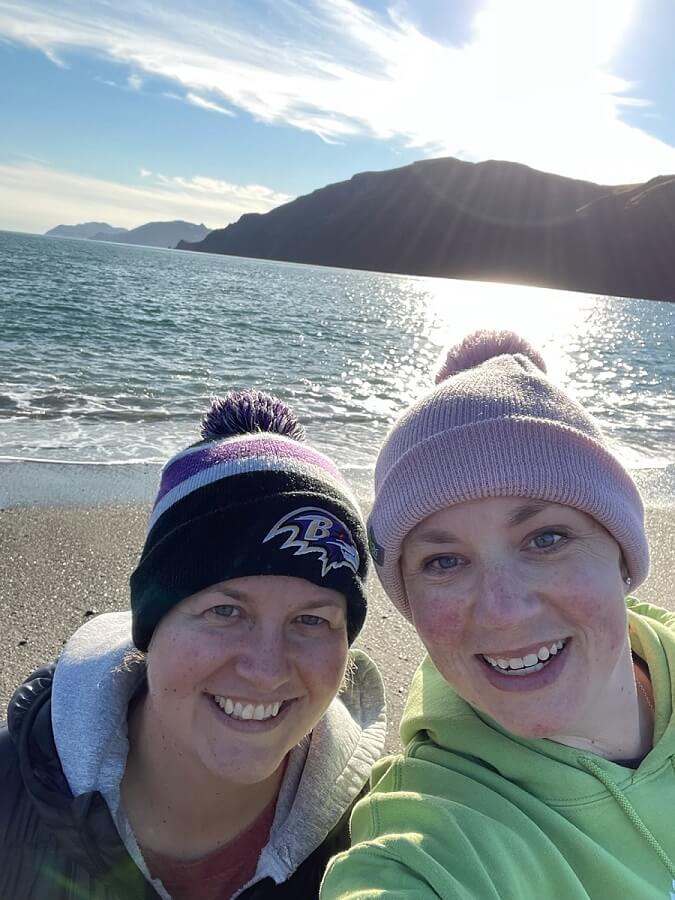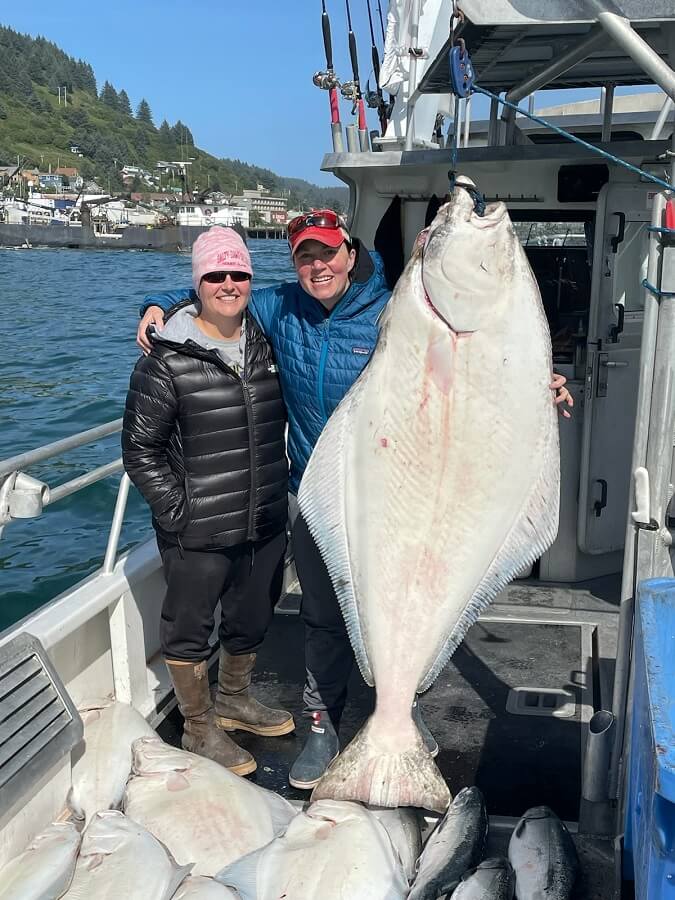Kim Saunders
If this profile reads like a Ted Talk, it might be because Kim Saunders is such a passionate, dedicated educator that you can’t help feeling inspired. You may also feel vicariously tired, because she does A LOT. As KIBSD Director of Special Services, Kim heads the largest department in the school district—overseeing special education, early childhood, counseling, mental health, and social work.
She knew from childhood what her life’s work would be. “I mean nobody knows their passion at three,” she says. “But I did. And it was legitimate. My parents can track it, I can track it. I’m just super grateful for it.”
 One disclaimer, I’ve known Kim since middle school. Even back then, at school and
student council and slumber parties, she carried that sense of purpose in a way that
was well beyond our years. She embodied inclusiveness and leadership before those
were even words we used.
One disclaimer, I’ve known Kim since middle school. Even back then, at school and
student council and slumber parties, she carried that sense of purpose in a way that
was well beyond our years. She embodied inclusiveness and leadership before those
were even words we used.
Kim earned her BA in Speech and Hearing Sciences, and a Masters in Special Education from Portland State University in 2001. She taught special education at Northstar Elementary, Kodiak Middle School, and in the preschool program at Peterson. She’s been an adjunct for the teacher education program at Kodiak College for almost a decade.
Kitty Deal, Associate Professor of Education says, “Kim has a gift for recognizing individuals who hold great potential as educators. She fosters their confidence and encourages them to take the first, and then subsequent steps in their educational journey to become a teacher.”
As an adjunct, and in her role as Director of Special Services, Kim says, “It’s no longer about what I can do, this is about how many people can I bring along to do the work that I feel so passionate about?”
Kim tells college students to seek out connections. “You might not know you have a web. And as a community we don’t always do a good job of having people feel it,” she says. “I constantly tell people to just keep chipping. Keep doing one credit at a time. They add up. You’ll find people are willing to help you. There’s a path.”
She encourages Ed students to take classes outside of their major, things like music
and drama, “because the real magic is in being an engaged teacher who loves what they do and really enjoys it. Kids can feel
that. All kids can feel when people like them. And kids need adults who listen and
talk to them. Every adult, even if you work at a bank or on an airplane or a coffee
shop. That’s how we help make the world better, is through every interaction with
kids. It’s a mission. And we, as a society, are doing less of that interacting with
kids—and in education we can see it every day. So to college students I say, ‘You
have the power to change the world if you find the thing you love and lean in. You
can make the world better. And the more education you seek and dive into, the more
hope there is for our community, or your family, or any place you choose to give your
incredible gift of time and energy.’”
being an engaged teacher who loves what they do and really enjoys it. Kids can feel
that. All kids can feel when people like them. And kids need adults who listen and
talk to them. Every adult, even if you work at a bank or on an airplane or a coffee
shop. That’s how we help make the world better, is through every interaction with
kids. It’s a mission. And we, as a society, are doing less of that interacting with
kids—and in education we can see it every day. So to college students I say, ‘You
have the power to change the world if you find the thing you love and lean in. You
can make the world better. And the more education you seek and dive into, the more
hope there is for our community, or your family, or any place you choose to give your
incredible gift of time and energy.’”
Being Director of Special Services looks like a whole lot of meetings and Zoom. During the pandemic, it has meant facing a host of challenges because her department has the highest number of certified and classified employees. Yet she appreciates all that they’ve learned.
“There’s real strength in saying, ‘Wow, look what we were able to do when we were extending grace to one another and covering for each other. I hope we never have to do it again in the way that we’ve had to do it, but we were flexible and we pivoted and we shifted, we changed protocols and we kept showing up. I've never been prouder to work with a group of people in my life than I am right now.”
Kim’s typical work day might include any of the following—grant management, supervision of staff, meeting with teams to triage or problem-solve specific cases, preparing for board presentations, doing trainings for staff and administrators, talking with families, talking with the Office of Children's Services, forming community partnerships, designing programs, recruiting.
Recruiting educators to Kodiak Island is an art, she says, as is retaining people in a small town that’s expensive, far from home, and in a state without competitive retirement benefits. When Kim travels to recruitment fairs, her sales pitch draws on Kodiak’s natural beauty and the people here.
“I love the way the sky looks limitless on a bright blue summer day and the way that
ocean air smells when the seasons  change. I love the way our community can rally to support each other,” she says. “And
I love that my roots run a lot like a spruce tree's—wide and intertwined. It’s about
the connections, being able to call and say ‘This kid doesn’t have a coat,’ and being
able to get them a coat within minutes.”
change. I love the way our community can rally to support each other,” she says. “And
I love that my roots run a lot like a spruce tree's—wide and intertwined. It’s about
the connections, being able to call and say ‘This kid doesn’t have a coat,’ and being
able to get them a coat within minutes.”
“I’ve always felt that Kodiak gets better with every new person. Like the Coast Guard, they came, they made us better or stronger in some way. I have paras I worked with in the classroom who still call me from other states. Maybe they're in Florida now and they ask, ‘What would you do in this situation? What was that thing that we used?’ Because they’re out in the world helping kids, which is cool.”
It’s not just past teacher’s aides calling. Kim is the friend and colleague every parent I know turns to for her expertise and advice. Parent, Tania Silva Johnson, says, “Years ago when I struggled to gain understanding of my daughter who was diagnosed with ASD, what she was going through, how to connect with her or how to get the right help, Kim guided us, provided clarity and needed information. Advocating for us and providing support when we needed it most. We are so grateful for the early interventions and support our daughter received thanks to Kim.”
A mutual friend describes Kim Saunders as the person you want in your corner, and the person you wish everyone had in their corner. There are a whole lot of corners in this community, and maybe no one is quite as aware as Kim is, of needs ranging from daycare providers hard-hit by Covid to preschool families struggling with drug addiction to first generation college kids lacking support. In the face of that—when you care about so many people, when boundaries aren’t your thing—is it possible to balance work and life? I asked, knowing she wakes at 5 to fit exercise into her day, gets 150 daily emails, is raising three kids, and that when she and her wife stopped by the animal shelter mid-pandemic, they came home with an old dog and two kittens. So.
“No, is the answer,” she laughs. “Balance isn’t my goal. All in, is my goal. I don’t
want to get to the end and go, I was really balanced. I want to get to the end and
say, I left it there. Sometimes I wish I didn't do it, or that I wasn't all in, or
I was somebody who sought balance. But I'm done feeling crappy about it. The balance
comes from finding a team of people that share your passion and urgency. If the people
around you match that fervor, when you have that synergy, then you know it’s not about you and you can be part of something bigger without carrying the weight
in the same way. For me, the building of the team that approaches problems or thinks
that it’s important enough to be all in makes it stronger.”
not about you and you can be part of something bigger without carrying the weight
in the same way. For me, the building of the team that approaches problems or thinks
that it’s important enough to be all in makes it stronger.”
You see what I meant about the Ted Talk stuff? When I asked her to describe a perfect day, I was expecting an answer like, a beach in Mexico, maybe with a Pacifico and some guacamole. Her answer was, “The perfect day has the momentum of other people thinking and dreaming and doing in the same direction.”
She believes the mission of a special education teacher is ensuring that people feel safe to be who they are, to embrace their strengths and get the support they need, and says, “My thing is, I’m always trying to see that everyone has a seat at the table. It doesn’t matter why you’re not at the table. I want there to be space for you there. That has translated from special education to social justice, to all the things. It’s just gotten bigger. Whether it’s LGBTQIA, creating access points, queer youth feeling safe, it’s all part of it.”
